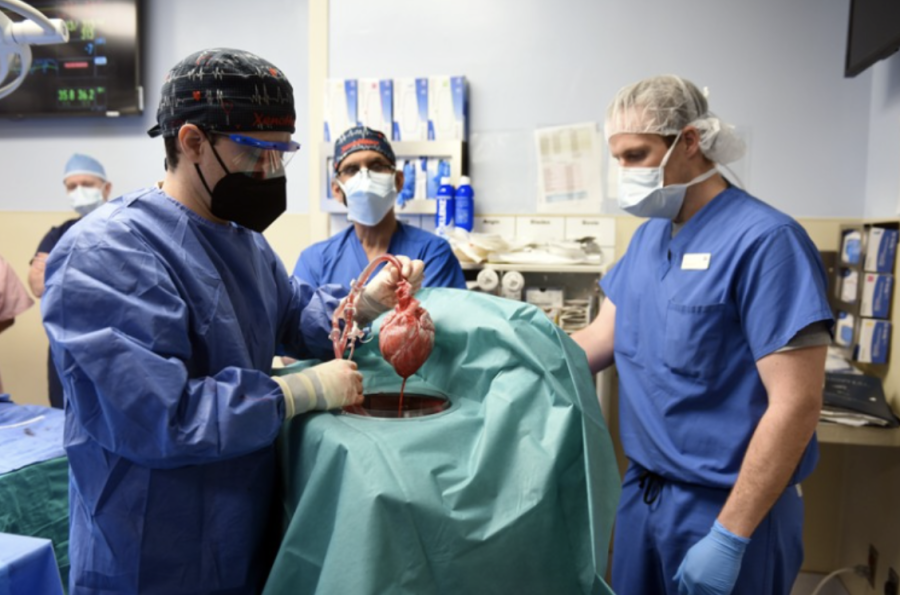The First Successful Pig Heart Transplant
In courtesy of the University of Maryland School of Medicine.
Doctors remove the heart from the sterilized environment to prepare inserting it into Bennett’s body. The pig the heart came from underwent several genetic modifications, some which suppress genes that trigger the human immune system.
March 15, 2022
During the month of January in 2022, David Bennett became the first man to successfully receive a heart transplant from a genetically modified pig. In the medical field, this is a phenomenon that opens up numerous doors of possibilities, for physicians and scientists have been striving to pursue the goal of transplanting animal organs into humans for decades. However, this particular advance faces many ethical and technical hurdles in the way.
Hundreds of thousands of patients tirelessly wait to be next on the UNOS list (United Network for Organ Sharing, a waiting list for transplants). By the day, they must suffer through congestive heart failures or failing lungs, hoping that a donor will magically appear. Unfortunately, there is an underwhelming presence of donor organs that haunts patients, their families, and health givers. This success changes the future of heart transplants, as well as the supply of organs for transplant surgeries.
At the same time, this brings into question the ethics of taking animals’ lives to save those of humans. Without doubt, thousands of pigs will be raised and killed to provide hearts for humans. In contrast, billions are treated the same way to provide food for humans. Now, a life-and-death decision weighs much more than the pleasure of eating a certain type of meat. Will humans be able to shift towards treating animals with justice and love, while still finding a solution to saving humans?
Though Bennett’s successful surgery is one that people all around the world rejoice for, it also poses countless questions that cloud the future of transplant surgeries. In the future, officials and ethicists must clearly define the eligibility of a pig organ, making justifications with their state of being rather than their wait time. Additionally, they must consider the rate of success and if it truly outweighs the risk of patients waiting for human organs.













